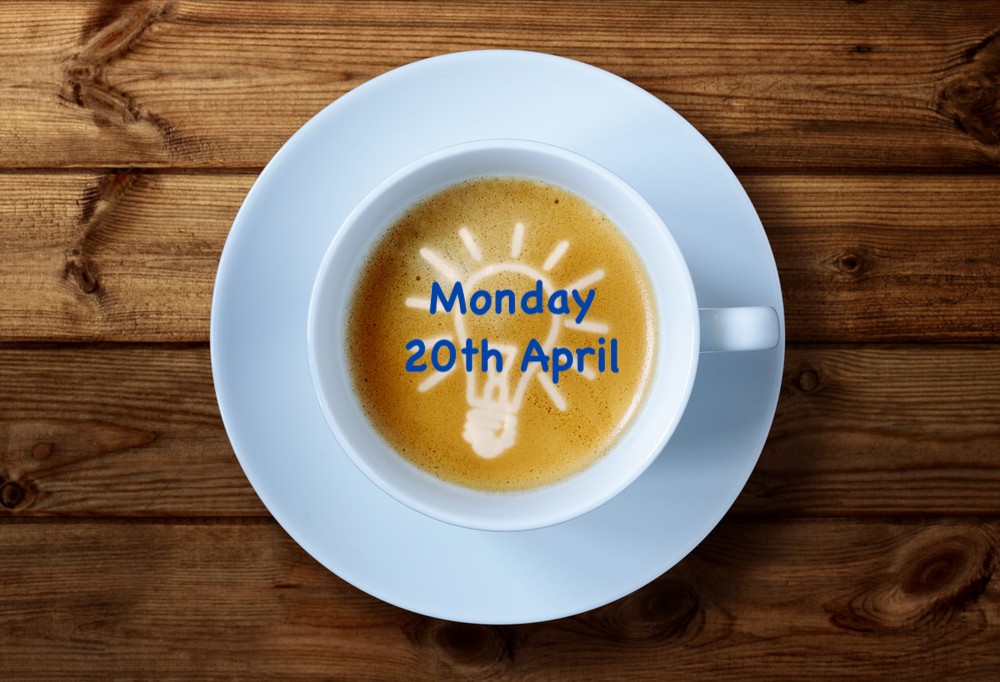- Call: 0203 427 3507
- Email: innovation@clustre.net

This is the write-up from the eighth in our series of virtual coffee breaks – designed to provide a caffeine-enriched forum for discussion amongst senior executives who might otherwise be going stir-crazy during this period of lockdown.
The topic for this session was: “The science of reading minds – knowing what clients are thinking and saying about you becomes even more critical from an enforced distance”and our guest speaker was John O’Connor, the CEO of Deep-Insight.

Deep-Insight are the business-to-business (B2B) customer experience experts. They help companies reveal the unvarnished truth about what their major clients think of them and provide the strategic insights needed to become truly customer centric.
John sometimes describes himself as a relationship counsellor. His job is to help companies understand and enhance the relationships they have, with their large B2B clients, by listening to them and acting on what they say.
B2B relationships are, of course, really person-to-person, and they are largely built around two key elements: trust and commitment. People only buy from people they trust, and long-term commitment between businesses is based on exactly that – a relationship built on trust, fairness, openness and transparency.
So, keeping that in mind, how should we deal with our clients in the current challenging environment? Reflecting on what some of his clients are doing with their customers right now, John’s insight is that this boils down to four things – all based on building an emotional connection with clients and enhancing your relationship:
The first point is to tell your customers what you are doing to contribute to safety – after all, the Covid-19 pandemic is primarily an issue of human safety and people out there are naturally concerned.
Some of our John’s clients deal with safety for a living. For example, Survitec has over 3,000 employees manufacturing safety equipment for Defense and Marine clients. Deep-Insight are working with the Marine division who manufacture everything from life jackets to lifeboats.
In the last few weeks, in response to Covid-19, Survitec has re-written the manual for doing lifeboat inspections to make sure it complies with WHO guidelines, including social distancing, wearing of gloves and face masks, the basics of handwashing, use of hand sanitiser, and carrying out deep cleans after work has been completed. All shipments that are sent from Survitec’s warehouses are cleaned and wiped down before being dispatched.
Telling your customers you are doing this is incredibly important right now; it provides reassurance and maintains trust.
It’s even more important now than ever, to have empathy with your customers. Long-term relationships involve a degree of give and take – now is probably a time to give more than to take. For example, Survitec have all the major cruise lines as customers, and those companies are suffering more than most right now.
Quite a few of John’s other clients also have customers that operate in industries hard hit by Covid-19. For example, Timico provides IT services to UK businesses including many in the restaurant and retail industry. These businesses are hurting, both at a corporate level and at a personal level.
Over the last few weeks, Timico has talking to these clients, understanding their particular circumstances and renegotiating deals and contracts based on the reality of what’s happening. For Timico it’s all about “providing confidence that we are doing everything we can to support our customers”.
Communication is two-way – it’s listening as much as it is telling. In fact, it should be more listening than telling.
John has another client, Invenio, that has about 1,000 staff deployed on large technical projects all across the globe – Americas, Europe, Middle East, Asia, Africa. Last Friday, Deep-Insight completed a customer feedback programme for them. There was some debate at the start of April about whether it was the right time to do this, the CEO Arun Bala decided – correctly – that now was absolutely the right time to find out what his clients were thinking.
As of this morning, Deep-Insight are going through all the feedback and as soon as this is shared with Invenio, their account owners will be going back to their clients, sharing and discussing this feedback, and coming up with action plans to address issues. Some of these issues will, of course, be Covid-19 related, but many will not.
Your staff are the interface your company has with your clients. So, you need to treat them in exactly the same way you treat customers.
John has a Danish client, Pelican, that operates self-storage facilities for small businesses and consumers all across the Nordic region. Most of their sites only have 2 staff, so good communication is a key requirement for Pelican’s management. Two weeks ago, Deep-Insight completed an employee assessment for Burkhart Franz, the CEO of Pelican. Two of the comments from members of staff stood out:
Even if Burkhart hadn’t been in a position to make that financial commitment to his employees, he would still have let them know exactly where they stand and what is likely to happen. It really does help to be honest and transparent; to keep the lines of communication open and treat your employees with respect.
So, these are John’s four key insights for managing your customer relationships at this time:
And if he had a fifth message, it would be to spend a lot of time thinking about these first four, because these are actions that companies need to take now, not just because they’re the right thing to do, but because they make sense commercially.
John finished with a message from a recent conversation he had with Ed Stainton, who manages the major government accounts for BT, including the various police forces across the country. Ed already has a fantastic set of relationships with these clients but he’s convinced that in the next assessment Deep-Insight run for him, he’s going to get even better scores – and more business – because his teams have been working 24/7 during March and April on a whole range of issues, directly or indirectly, related to Covid-19. He firmly believes this enhanced contact will lead to better and deeper relationships.
So, now is the right time, and a big opportunity, to just go and do all the things we should be doing anyway, to communicate with our customers – this will lead to happier customers in the short term and, hopefully, better business in the longer term.
In the discussion that followed John’s remarks, several participants raised questions around the number of people you should survey in a given client organisation, how to do this and at what frequency. John’s advice is as follows:
John has co-authored a book, based on more than a year spent asking companies what it means to be truly customer-centric. Three copies were awarded as prizes to the first three participants who correctly answered: In what year was BT privatised? (1984).
Customer at the Heart: How B2B leaders build successful Customer-Centric Organisations by John O’Connor and Peter Whitelaw:
John’s book has just been released in Kindle format on Amazon for the knockdown price of £6.99. To get it please click here.
Deep-Insight are the business-to-business (B2B) customer experience experts. They help companies reveal the unvarnished truth about what their major clients think of them and provide the strategic insights needed to become truly customer centric.
John has another client, Invenio, that has about 1,000 staff deployed on large technical projects all across the globe – Americas, Europe, Middle East, Asia, Africa. Last Friday, Deep-Insight completed a customer feedback programme for them.
If you have found this write-up interesting and would like to register for future events, please visit www.clustre.net/category/events/